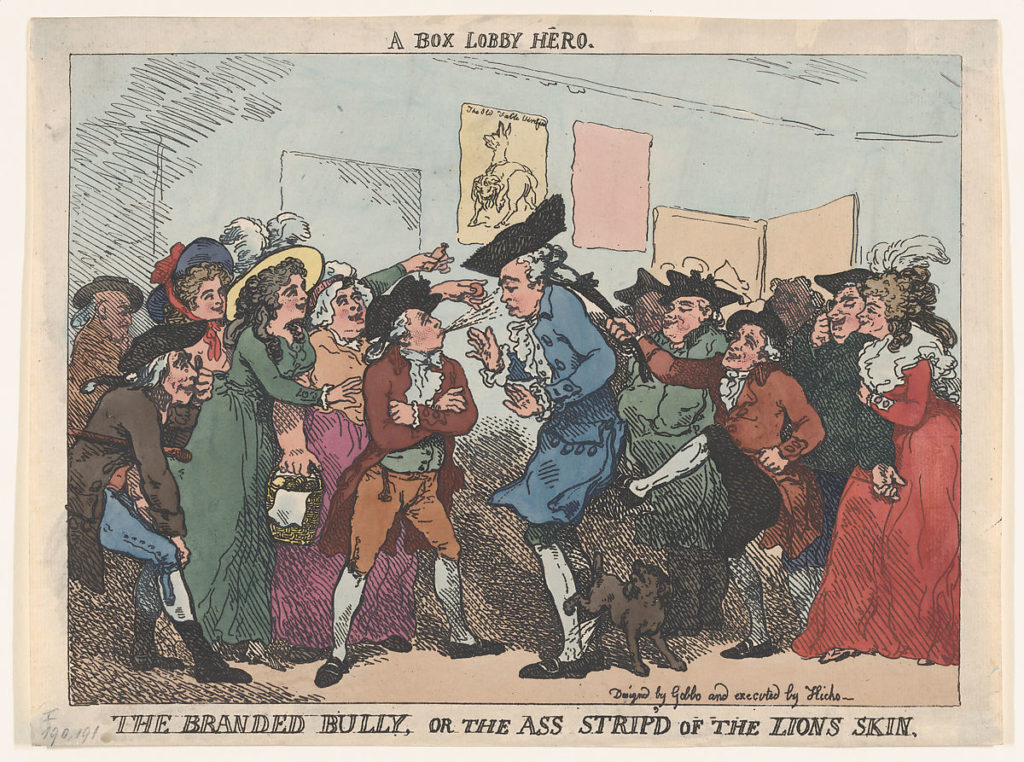
Published December 16, 2022
You might think that the home stretch of an election campaign, albeit only a midterm one, would be a particularly opportune time to scrutinize the American media’s coverage (if that’s the right word anymore) of the country’s recent politics. But the permanent campaign that has come to characterize our political life means that, by the time the actual campaign rolls around, both the politicians and the media have already said everything they have to say, and a lot more besides, and can only go on repeating more or less the same message that they’ve been pounding out ever since the last election. “Time for Democrats to play the fear card,” wrote Bill Press for The Hill with two weeks to go before the November midterm. What card did he think Democrats had been playing for the previous two years? Perhaps he had been paying no more attention to the long-running demonization of what President Biden calls “maga Republicans” than the average American voter had.
Among the all-too-familiar terrors of the earth that Mr. Press purported to foresee as a consequence of future Republican congressional majorities, however, there lurked a brand new one. When Kevin McCarthy, the gop leader in the House, proposed an extension of the Trump tax cuts of 2017, he was (according to Mr. Press) “echoing the disastrous ‘trickle-down’ economic plan launched by Britain’s hapless Prime Minister Liz Truss.” I’m sure I don’t have to point out to New Criterion readers the disingenuousness of this description. Ms. Truss’s proposed tax cuts were undoubtedly disastrous for her premiership, but they could hardly have been so for the country, since even those that remained after her almost immediate U-turn were not passed into law nor would have had time to have had any effect, good or bad, if they had been.
I suppose it’s natural for today’s Democrats to see anything that is disastrous for them as being equally disastrous for the country. That’s why the likes of Ryan Cooper of msnbc were telling us that “what’s at stake in the midterms” was not just the fate of the Democrats but that of democracy itself, with which Democrats have lately taken to identifying themselves. In Britain it was the financial markets that played the fear card in response to the Truss tax cuts, as proposed by the then-chancellor of the Exchequer, Kwasi Kwarteng. The markets’ turmoil and a brief run on the pound lent the sort of specious credence to the left-wing disaster narrative that the “Black Monday” stock-market crash of 1987 did to critics of “Reaganomics”—on which Ms. Truss seems to have modeled her “dash for growth.”
This year’s “October Surprise” may have happened three thousand miles away in another country, but Democrats had to take what they could get—which turned out to be what almost amounted to a coup d’état in Britain. Like Mr. Press, the British media snapped immediately into their default narrative about the inevitable failure of “trickle-down” or “neoliberal” economics, and Ms. Truss, buying into it along with everyone else, promptly fired Mr. Kwarteng. Apparently there was no kind friend to inform her that she herself could hardly hope to survive such a failure of nerve.
I wish I could tell you how the putsch that removed Liz Truss from the prime ministerial office she had occupied for only forty-five days was accomplished. So used was I to seeing media skulduggery at work in the long and ultimately successful press effort to bring down her predecessor, Boris Johnson, that I must have been blind to what was probably only an opportunistic effort to do the same for her. The media might have been glad to take the credit for her fall, but it was the financial panic that provided the spark that set off panic among the already nervous and divided Tory MPs, who had preferred Rishi Sunak, the man they ultimately got, to Ms. Truss in the just-concluded leadership contest.
The British press, of course, was happy to cheer the process on. A convenient short-hand on the Left for describing the Truss–Kwarteng wrongthink, among other things, was “neoliberalism.” This was William Davies’s answer to his own question on the cover of the London Review of Books asking, “What the hell is going on?” The article itself is titled “Madman Economics,” which is about as precise a designation of what Ms. Truss had in mind as “neoliberalism”—a word which, in America, is often used as an equivalent of “neoconservatism”—or “trickle-down economics.” Finding the partisan language with which to explain the prime minister’s fall was apparently almost as good, for Mr. Davies and the LRB anyway, as predicting it would have been.
As for the American media, they will surely not hesitate to take the British experience as a vindication of their own assumption of a sort of latter-day Divine Right of Kings—the right, inherited from the journalistic heroes of Watergate, to decide who is and who is not fit to hold high office. I had supposed that no one could outdo the American media in their propensity for groupthink, but the British, on this occasion at least, have left us standing. The chorus of abuse heaped upon the blonde head of poor Ms. Truss by the British media resembled nothing so much as the ritualistic Two Minutes Hate of Emmanuel Goldstein in George Orwell’s Nineteen Eighty-Four.
For it’s not as if there was no defense to be made of Trussonomics, even though Ms. Truss herself, let down by her backbenchers, gave it up almost without a fight. Sherelle Jacobs and Matthew Lynn in The Telegraph, Izabella Kaminska at UnHerd, and Joseph Sternberg of The Wall Street Journal all made the point that the financial markets and the pound were shaky well before Mr. Kwarteng stood up in the House of Commons to deliver his “mini-budget,” and that the changes in tax and spending being proposed by him on that occasion were not only likely to have had beneficial effects, if they had been enacted, but were actually quite modest, especially in comparison with the fiscal profligacy of his immediate predecessors in office—who included Mr. Sunak. The Journal editorialized on the “rough justice” of his appointment as Ms. Truss’s successor, since it now fell to him to clean up the fiscal and economic mess that he himself had done so much to create when he was chancellor, through overspending during the pandemic.
So why the near unanimity of execration heaped upon Liz Truss? “Is Truss the worst PM in history?” asked the historian Dominic Sandbrook almost before the ink was dry on the mini-budget. When the anti-Brexit and (now) anti-Tory columnist Matthew Parris recounted in The Times a brief anecdote of Ms. Truss’s encounter with a constituent that was to her credit, he was deluged with hate mail for it:
How could I praise that dreadful woman? What made me think the anecdote was evidence she was any good as a prime minister? Who cared what this monster said to a farmer? How sad (I reflect) in this age of instant and violent opinionating on electronic media, that once the populace has decided they don’t like somebody, anything positive at all about them is taken as some kind of heresy.
Perhaps the public’s contempt had something to do with the fact that, by wilting so quickly in the face of savage criticism, Ms. Truss seemed in a manner to acquiesce in her own disgrace, thus inviting comparison with those pathetic figures of the Chinese Cultural Revolution under Chairman Mao Zedong who were forced to wear dunce caps and confess publicly to thuggish Red Guards their sins against the revolution. Certainly, as Matthew Parris suggests, Britain’s experience with the Twitterverse and the media’s cancel culture, like America’s, will have prepared the public for the phenomenon of even quite famous and powerful people who become unpersons overnight.
But what had Ms. Truss done that could have warranted such treatment? One explanation had to do with the precarity of her position in the party. Because of the way the Tories (and Labour, for that matter) elect their leaders now, the party’s members in the country and not its members of Parliament have the final say. Ms. Truss had the support of the country’s Conservatives, but only a minority of her party in Parliament, and it was the latter she needed but didn’t have when the panic began to spread.
A more important consideration is that, even under Mrs. Thatcher, the British never warmed to American supply-sideism or Reaganomics. Nigel Lawson, then the financial secretary to the Treasury and later chancellor, called the Reagan tax cuts of 1981 “grievously mistaken.” Although Mr. Lawson as chancellor cut taxes himself, he could only do so after the austerity of the first two Thatcher parliaments had made the cuts, in his view, possible. Tax-cutting for growth—which, as Arthur Laffer’s famous “curve” proposed, would make up for the shortfall in government revenues—remains to this day a foreign and deeply suspect idea in Britain. There, what has become economic orthodoxy among U.S. Republicans—in fact, one of the few things that still unites them in the Trump era—remains “voodoo economics” as George H. W. Bush called it back in 1980.
No doubt there is something deep in the British national character to make people convinced that economic medicine always has to taste bad in order to work. How else to explain the palpable relief on the Tory backbenches at the accession to the premiership of Mr. Sunak and his promise to renew “austerity” measures like those of the coalition government of 2010–15 or Mrs. Thatcher back in the 1980s? The media narrative generated by a brief disturbance in the financial markets could thus rely on the support of several already-existing cultural narratives and norms that have become all but ineradicable, an instant source of political certainty for all parties of a kind that, when we encounter its more partisan manifestations in the American media, always seems put on.
The Tories had come to power in 1979 under the shadow not only of the “Barber boom” during the premiership of Ted Heath in the early Seventies and the runaway inflation which followed but also of what was seen as the national humiliation brought upon the country when the then-chancellor, Denis Healey, went cap in hand to the International Monetary Fund in 1976 for an emergency loan so that the government could continue to function. One or both of these precedents was cited by many of Ms. Truss’s critics, and nobody wanted to go back to the days before Mrs. Thatcher liberated Britain from its reputation as the sick man of Europe—though, as Matthew Lynn pointed out in the article mentioned above, the Truss government’s situation was quite different from those of the 1970s governments of both parties.
These historical considerations, however, were now joined by another, which was the Brexit vote of 2016 that took Britain out of the European Union. The disgruntled faction of Tories who had voted Remain have remained only bitter about it ever since. Now frustrated that, having finally got rid of Boris, they saw his successor as someone even worse, someone who out-Borised Boris in committing herself to economic growth rather than austerity, they had finally had enough. The panic represented an I-told-you-so opportunity for everyone still resentful about what has happened in Britain since 2016 and especially for the media, who are overwhelmingly Remainer in sympathy, like most of the rest of the British elite.
Such contextual items are all just elements of the same kind of media narrative that today’s “explanatory journalism” relies on to make sense of the world, in Britain as in America—except that in Britain the anti-Truss narrative had been building, layer upon layer, for decades before Ms. Truss herself was ever heard of, while American media narratives tend to be more ephemeral and trotted out on an ad hoc basis, like that of Russian “collusion” or the Capitol “insurrection.”
To be sure, we have our own long-running media narratives, like the one that finished off Ms. Truss, which have become culturally embedded to such an extent that they are undislodgeable by anything short of a revolution. One such is “trickle-down economics,” which goes back to the days of Herbert Hoover—a man who was the very antithesis of the supply-siders to whom the same epithet is being applied today.
Another is of course “Watergate.” When a burglar broke into the Phoenix headquarters of Katie Hobbs, the Democratic candidate for governor of Arizona, with two weeks to go before the election, the comparisons to Watergate, by both the Hobbs campaign and the media, were automatic. As I write, the attack by an intruder on Nancy Pelosi’s husband is already receiving similar treatment by the media attributing it to “hateful rhetoric” by those darned “maga Republicans.”
In the Katie Hobbs case, when a certain Daniel Mota Dos Reis, who had already been arrested in another burglary, was charged with this one as well, Ms. Hobbs tried to make a virtue out of saying she didn’t want to talk about it. On his Substack, Chris Bray wrote that “No politician of any party at any previous moment would have been dumb enough to jump off the cliff of Watergate rhetoric before having any information at all, not knowing if it would hold up,” but I don’t think this can be true —as all the ultimately abortive “worse than Watergate” stories of the last few years would seem to show.
New events become parasitic upon old narratives in America because people like Ms. Hobbs know that the media will never take them to task for it—any more than they did Peter Strzok for saying that the riot of January 6, 2021, was worse than the terrorist attacks of September 11, 2001, in which three thousand people died.
Ho-hum, just another day of Twitterfied rhetoric on the World Wide Web. By comparison, the British media’s discovery in their erstwhile prime minister of an avatar of the Heaths, Wilsons, and Callaghans of the 1970s, whose economic mismanagement has now become legendary, looks like a calm and judicious historical analysis.
It’s not. But the sad story of Liz Truss should serve as a reminder that the media—whom I, for one, am inclined to blame for everything that is wrong with our political culture—are really only the tip of the cultural spear that is now aimed at our democratic and constitutional institutions in the name of the woke revolution. And the media’s job, by constant repetition, is to embed its progressive and anti-conservative mantras in our culture so that they can never be removed from it and can continue into the future to trigger the sort of automatic reaction that sunk Ms. Truss before anyone quite knew what was happening. They’re bound to get better at it, which means that any honest person who wants to know what the hell is going on must get better at spotting and exposing it.
Mr. Bowman is well known for his writing on honor, including his book, Honor: A History and “Whatever Happened to Honor,” originally delivered as one of the prestigious Bradley Lectures at the American Enterprise Institute in 2002, and republished (under the title “The Lost Sense of Honor”) in The Public Interest.
Thomas Rowlandson, The Branded Bully, or the Ass Stripp’d of the Lion’s Skin, 1786, Etching, the Metropolitan Museum of Art, New York.
Mr. Bowman is well known for his writing on honor, including his book, Honor: A History and “Whatever Happened to Honor,” originally delivered as one of the prestigious Bradley Lectures at the American Enterprise Institute in 2002, and republished (under the title “The Lost Sense of Honor”) in The Public Interest.








